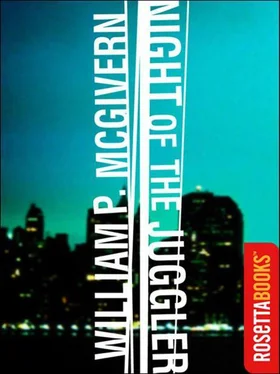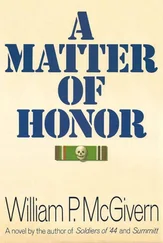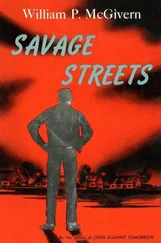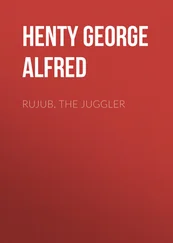William McGivern - Night of the Juggler
Здесь есть возможность читать онлайн «William McGivern - Night of the Juggler» весь текст электронной книги совершенно бесплатно (целиком полную версию без сокращений). В некоторых случаях можно слушать аудио, скачать через торрент в формате fb2 и присутствует краткое содержание. Жанр: Триллер, на английском языке. Описание произведения, (предисловие) а так же отзывы посетителей доступны на портале библиотеки ЛибКат.
- Название:Night of the Juggler
- Автор:
- Жанр:
- Год:неизвестен
- ISBN:нет данных
- Рейтинг книги:3 / 5. Голосов: 1
-
Избранное:Добавить в избранное
- Отзывы:
-
Ваша оценка:
- 60
- 1
- 2
- 3
- 4
- 5
Night of the Juggler: краткое содержание, описание и аннотация
Предлагаем к чтению аннотацию, описание, краткое содержание или предисловие (зависит от того, что написал сам автор книги «Night of the Juggler»). Если вы не нашли необходимую информацию о книге — напишите в комментариях, мы постараемся отыскать её.
Night of the Juggler — читать онлайн бесплатно полную книгу (весь текст) целиком
Ниже представлен текст книги, разбитый по страницам. Система сохранения места последней прочитанной страницы, позволяет с удобством читать онлайн бесплатно книгу «Night of the Juggler», без необходимости каждый раз заново искать на чём Вы остановились. Поставьте закладку, и сможете в любой момент перейти на страницу, на которой закончили чтение.
Интервал:
Закладка:
Since he tried to be honest with himself, he reluctantly conceded that it had once been a stimulating challenge to examine musical scores as if they were campaign maps, searching out the trivial or complex reasons behind the writings of plays and novels and operas.
He remembered an afternoon in a hotel in London (where had it been, the Connaught?), he could recall even now the look and texture of the warm sunlight on the backs of Barbara’s slim hands, and as he thought of her then, her eyes shining with grave amusement, quoting words from Dylan Thomas, Luther Boyd felt a stab of poignant pain at all the promises and pleasures they had lost in only these last brief years.
He stood and paced the study of his apartment above Central Park, choosing another book from his shelves, a military manual detailing General Grant’s strategy and tactics while driving his Army of the Tennessee against Forts Henry and Donelson on his battering course through Shiloh to Vicksburg.
There was a lesson in guerrilla warfare to be learned from the confusion of the rebel commanders facing Grant, the mismatched triumvirate of Generals Floyd, Pillow, and Buckner. They had allowed a massive victory to evaporate, to slip from their collective hands that night; faulty intelligence had been part of it, but more important, they had been deceived by chimerical phantoms which had convinced them that the Union forces were still in position, thus causing them to sound retreat against an enemy that had already withdrawn from the field.
But what they took for the enemy had been only the banked Union campfires, whipped into flames by gusting winds to create the illusion of a continuing hostile encirclement.
Boyd checked his watch as he heard, above Kate’s hi-fi, the musical chimes of the front door. This would be Barbara, he thought, as he rose and went into the living room. Injustice is relatively easy to bear, he had once read; what stings is justice. Was that why his mood was so wounded and angry? Because there was justice in Barbara’s position? So let’s get this the hell over with, he thought. As Patton said, a pint of sweat can save a gallon of blood. . Don’t think; act.
“I think we’ve wasted too much time and energy in accusations,” Luther Boyd said to Barbara. “Do you want a divorce?”
He stood with his back to her at the windows of the long drawing room, staring at but not seeing the golden glow of the last sunlight in the crowns of towering elms and maples in the park.
Barbara was at the bar making herself a drink. Because his question terrified her, made her feel lonely and shaken, she managed a defiant smile and said to him, “Can I fix you a touch, Luther?”
“I’m trying to be serious, Barbara.”
“You don’t have to try to be serious, Luther. You are serious.”
“What about it? Yes or no?”
She was frightened at the thought of leaving him, but she was determined to do it, simply because she couldn’t bear his leaving her again and again and again. . She had been alone when Kate was born. She had been alone when the wire had come that Buddy was dead. She had been alone on too many nights when her body ached for his love. And she had been alone with him too often when he sat in the same room with her with his thoughts lost in the history of centuries-old campaigns and wars.
He would always leave. The flags on the horizon, the distant thunder of artillery, the challenge of decisions and battles were magnets he couldn’t resist.
And she didn’t want him to leave her. But there was no word from her, no cry, no appeal that had the magic of the lures that streamed like plumes from his concepts of honor and duty, and yes, she thought bitterly, yes, always, the fire-engine excitement of armies on the march. .
She put her drink down on the bar, walked across the room, and stopped behind her husband.
“Luther, at the risk of boring you out of your mind, can I try to explain one more time why I’ve come to this decision?”
Boyd turned and looked steady at her. “Of course,” he said patiently.
“This is truly important to me, Barbara.”
While she was trying to collect thoughts that scattered around in her head like mice, there was an excited yelping from the corridor, and Harry Lauder burst into the room, tugging at the leash in Kate’s hands.
Kate ran to her mother and gave her a hug and a kiss while Harry Lauder circled them both with yapping enthusiasm.
Kate knew that her mother and father were being what people called “civilized” about their problem, but she thought it was grossly unfair that she wasn’t allowed to talk to them about it, that she was expected to be just as “civilized” as they were.
“Mommy, I’ll only be gone ten or fifteen minutes. Will you wait here for me?”
“Of course I will, darling.”
“Remember the ground rules, Kate.”
She repeated them in a singsong but cheerful voice. “Stay on the east side of Fifth Avenue, in your own block where Mr. Brennan can keep an eye on you.”
“Right,” Boyd said.
In the lobby, Mr. Brennan pulled on a heavy blue overcoat decorated with gold epaulets and went outside with Kate and, standing under the canopy, looked with affection after the girl who was skipping down the block with her little Scottie.
The wind was fresh and cold on her cheeks and sent strands of her silken blond hair streaming behind her like pennants.
Across the street the same winds played in the big trees of Central Park. Leaves were blown high in the air to spin with errant thermals and finally to drift down into the thick shrubbery bordering the sidewalk along this block of Fifth Avenue. There was a fall fragrance in the air, threaded with the delicate, smoky tang of roasting chestnuts. The elderly vendor had positioned his cart a block south of Kate’s building and was stamping his feet against the cold, his breath hoary in the deepening twilight winds.
Kate, at the opposite end of the block, north of her building, was snug against the weather in small sturdy boots, a blue jump suit, and a red quilted ski jacket with decorative zigzag stitchings on the collar and sleeve. She also wore her green suede shoulder bag because there was a dollar bill in her wallet, and she wanted to buy a bag of hot chestnuts before she went back up to her apartment.
Traffic was light on the avenue. Harry Lauder began barking at something or someone in the bushes across the street in Central Park.
“No, no, no,” Kate said, and pulled him back from the curb. She walked south toward her building then, giving Mr. Brennan a wave and a smile.
She called a greeting to the chestnut vendor, who returned it with a bobbing nod. He was a mute, but his hearing was unimpaired, and he seemed to enjoy the traffic and activity of the street and his limited exchanges with the little blond girl and her Scottie.
Rudi Zahn was a precise and orderly man who took his exercise seriously. He did not stroll through Central Park idly cataloguing birds and trees and flowers, but instead strode the pathways with long, decisive strides, almost as if marching to the cadence of distant martial music. It had rained in the late afternoon that day, a miniature autumn squall, which had had the positive effect of rinsing the air and leaving it as clear and bracing as winds over freshwater lakes.
Rudi was thinking about Crescent Holloway, which in turn led him to remember the pale and ravaged face of Ilana, one of the four survivors from a dozen-odd families who had been deported from Rudi’s village in Bavaria to concentration camps in Poland. At age five Rudi had adored Ilana, who had been a slim, vivacious eight-year-old, charged with tomboyish energies and excitements and graced with a buoyancy of spirit that seemed indestructible to everyone who knew and loved her. She was everyone’s pet, and when the soldiers came, it seemed somehow a special and dreadful outrage that Ilana should be taken away with the other seventy-four Jews of the village.
Читать дальшеИнтервал:
Закладка:
Похожие книги на «Night of the Juggler»
Представляем Вашему вниманию похожие книги на «Night of the Juggler» списком для выбора. Мы отобрали схожую по названию и смыслу литературу в надежде предоставить читателям больше вариантов отыскать новые, интересные, ещё непрочитанные произведения.
Обсуждение, отзывы о книге «Night of the Juggler» и просто собственные мнения читателей. Оставьте ваши комментарии, напишите, что Вы думаете о произведении, его смысле или главных героях. Укажите что конкретно понравилось, а что нет, и почему Вы так считаете.












